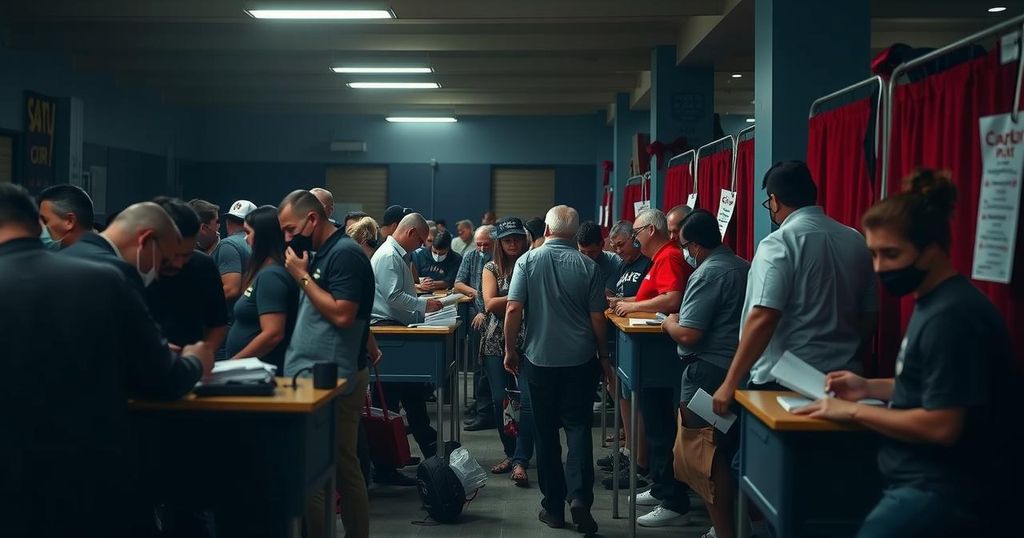Uruguay Prepares for Critical Presidential Runoff Election

Uruguay is set for a decisive presidential runoff on November 24, pitting center-left candidate Yamandu Orsi against conservative Alvaro Delgado. Opinion polls suggest a very tight contest, with potential ramifications for the political landscape in a country known for its stability amid broader regional electoral challenges. Initial voting results will be available shortly after polls close at 7:30 p.m.
Montevideo, Uruguay will witness voters participating in a crucial presidential runoff between two moderate candidates on November 24. The incumbent conservative candidate Alvaro Delgado, supported by the Colorado Party, will compete against the center-left candidate Yamandu Orsi from the Broad Front. With opinion polls indicating a very tight race, particularly since approximately 25,000 votes may differentiate the leaders, the stakes are notably high in this election, which follows a year marked by significant electoral events across South America.
The upcoming election highlights the unique political atmosphere in Uruguay, which has managed to maintain relative stability and consensus compared to the political polarization rampant in neighboring countries like Argentina and Brazil. Voter engagement seems to be increasing, with both candidates aiming to capture support from individuals who previously voted for smaller parties or did not participate in the first round of voting. Poll stations will open at 8 a.m. local time and are expected to close by 7:30 p.m., with initial results anticipated shortly thereafter.
Uruguay, known for its progressive policies, such as the legalization of marijuana, has maintained a distinctive political culture characterized by less division compared to its Latin American counterparts. The current presidential candidates have campaigned on platforms that prioritize continuity and moderate change. The political dynamics are further complicated by the need for coalition-building, as no single party holds a commanding majority in the legislature following recent elections. With economic conditions being a significant focus for voters, the outcome of this runoff may reflect broader regional trends in electoral behavior amidst ongoing challenges such as inflation and cost-of-living concerns.
In conclusion, Uruguay’s presidential runoff between Yamandu Orsi and Alvaro Delgado is poised to be a closely contested affair, reflective of the nation’s political serenity amidst global electoral turbulence. With neither coalition possessing an absolute majority, the candidates must navigate a delicate balance to secure the votes of undecided voters and those dissatisfied with the traditional party choices. This election not only holds implications for Uruguay’s immediate political landscape but may also serve as a barometer for shifts in voter sentiment across the region.
Original Source: www.ndtv.com








